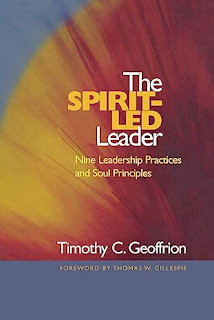Getting Things Done by David Allen (How to Achieve Stress-free Productivity)
Getting Things Done by David Allen (How to Achieve Stress-free Productivity)
Overwhelming, busy, stressful, demanding are the answers you invariably get when asking people about their day, work, job and things they need to accomplish. We always have more to do than we have time to do them and more interestingly, if you asked some of the most seemingly busy people what they have accomplished for the day, you may be surprised to hear that many have nothing to show for their time and busyness.
David Allen argues that it possible to hack our working habits by setting up a straight forward system and achieve stress-free productivity. His main purpose is to teach us how to be maximally efficient and relaxed, whenever we need or want to be.
How then do we achieve this and be known as achievers and dependable people? David argues that on the one hand, we need proven tools that can help us focus our energies strategically and tactically without letting anything fall through the cracks; and on the other, we need to create work environments and skills that will keep us from burning out due to stress.
What do you do when your best thoughts about work won’t happen while you are at work?
The author is on a mission to show, throughout the book, that it is possible for one person to have an overwhelming number of things to do and still function productively with a clear head and a positive sense of relaxed control. His methods are all based on two key objectives: (1) capturing all the things that need to be done-now, later, someday, big, little or else- into a logical and trusted system outside of your head and off your mind; and (2) disciplining yourself to make front-end decisions about all the inputs in your life and plan for next actions to be implemented or negotiate at any moment.
To solve the day-to-day, hour-to-hour distractions around us, the author calls us to always have the big picture in mind and see that our little actions and decisions are contributing into making that big picture a reality. In order to experience great relaxation, better focus and increase productive energy, we should also be comfortable with saying No and not falling into the truism trap of making inappropriate commitments.
David shows that before you can achieve that, though, you’ll need to get in the habit of keeping nothing on your mind (have a list on a trusted system). And the way you do that is not by managing time, information or priorities but the key is by managing your actions.
Once you’ve decided on the next action, you have three options:
1. Do it: If an action will take less than two minutes, it should be done straightaway
2. Delegate it: If the action will take longer than 2 minutes and you are not the right person to do it. Delegate it.
3. Defer it: If the action will take longer than 2 minutes and you are the right person to do it. Defer it to your action list by defining the next step action on it and when to do it.
The author further argues that in reality you don’t actually do a project; you can only do actions steps related to it. You’ve got to think about the big things while you’re doing small things, and ensure that all the small things go in the right direction. Direction is key because advancing the wrong direction is not progress, progress is actually stopping and taking a turn towards the right direction as Will Rogers says “When you find yourself in a hole, stop digging”.
David insists that a project is sufficiently planned for implementation when every next-action step has been decided on every front that can actually be moved without some other part having to be completed first. This next-action thinking forces clarity.
Our work (not job) should be our greatest source of satisfaction and our gift to the world. As the Budda said “Your work is to discover your work and then with all your heart give yourself entirely to it.”
Mark Twain – “The secret of getting ahead is getting started. The secret of getting started is breaking your complex overwhelming tasks into small manageable tasks, and then starting on the first one.”
So after reading this summary: What is your next action?
Thank you Tom for the book





Comments
Post a Comment